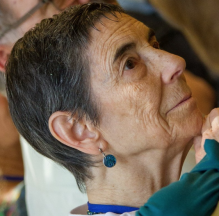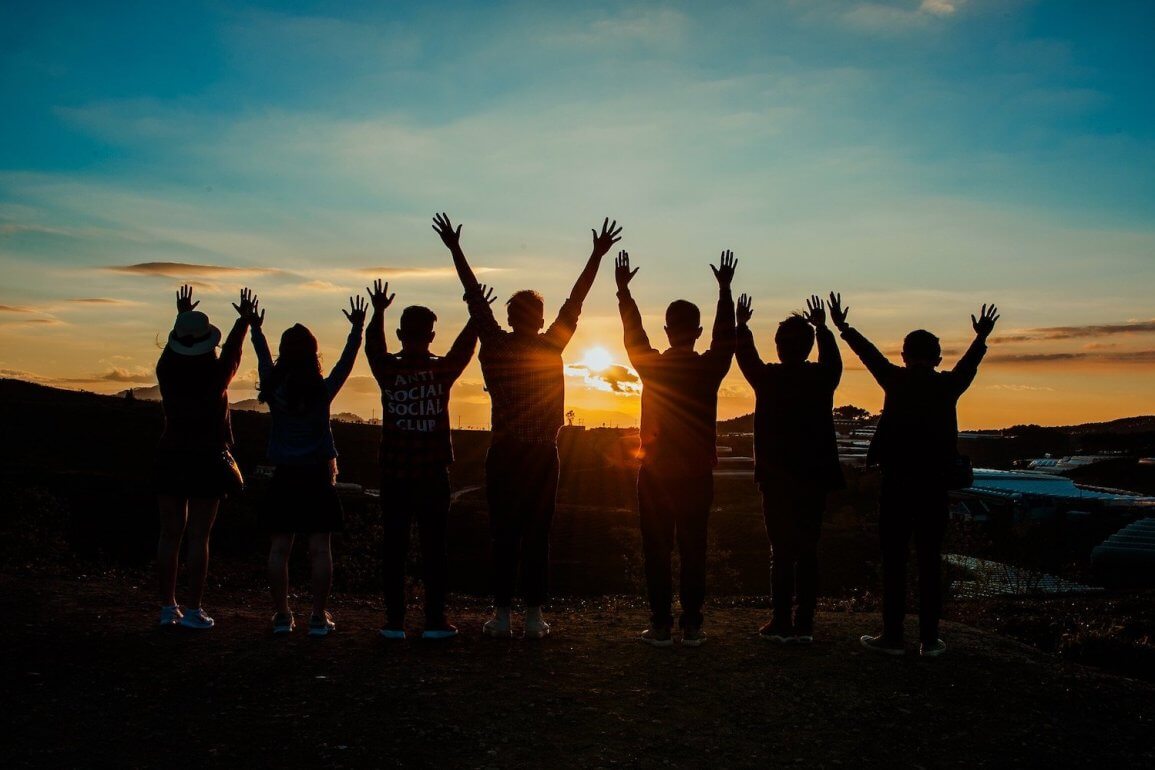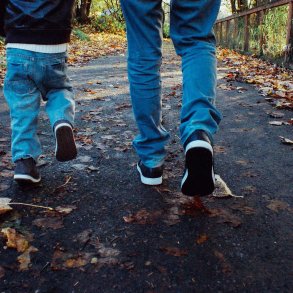By Lia Aurami for Enlivening Edge Magazine
Is “resilience” important to you? Have you been thinking about it sometimes over the past topsy-turvy months? As so many of our experiences become uncomfortable, frightening, or downright apocalyptic, does cultivating or having resilience offer an alternative to spiraling into vicious polarization, panic, depression, or beyond that into apathy? And what role, for humanity, might human organizations play in providing some resilience for our species?
As many people in the Northern Hemisphere of the planet are in vacation mode, there is an opportunity for us to step back from our daily concerns and zoom out, or perhaps it’s zooming in, to such increasingly timely, urgent contemplations. I was triggered into contemplations I’d like to share in this Editorial, when I recently read the HeartMath Institute’s new definition of resilience (and what they are offering to cultivate it.)
What is resilience and what is it based on?
They say the old concept has been “The ability to bounce back after stress” or Webster’s Dictionary definition “An ability to recover from or adjust easily to misfortune or change.”
HeartMath’s proposed new concept of resilience is “The capacity to prepare for, recover from and adapt in the face of stress, adversity, trauma, or tragedy.”
The difference between old and new concepts is two-fold.
First, humans have the ability to increase their capacity for resilience. Resilience would be like a charge on one’s inner battery. When we have a higher charge, we have more energy to devote to self-regulating to stay functional under stress, including thinking more clearly, perceiving more accurately, and making more effective decisions. The HeartMath folks found that the greater a person’s capacity to accumulate resilience energy, the more ability they have to maintain their composure and stay in charge of their reactions.
And there is a level beyond that. The second aspect of the new concept of resilience is that we can foresee and prepare for and possibly mitigate if not avoid, serious challenges from which we would need to bounce back, recover, draw on our inner battery. Or, we can adapt.
That makes a lot of sense. Who wouldn’t want more resilience capacity? I am delighted to learn of their training programs devoted to fostering that capacity for individuals and for group trainers. Then an inquiry arose in me (no surprise!) as to what aspects of human organizations could contribute to resilience as a capacity related not just to adversity but to change itself.
It’s clear that resilience has to be based on fundamentals of human nature and human life.
The need for resilience is most acute when we are rocked back on our heels down to our basic concerns. As when a loved one dies, we are shifted into questions about mortality and the meaning of life and of death.
At such points, nothing superficial, effortful, or complicated works to keep us functional, let alone able to address or resolve the challenges. Whatever cultivates resilience has to arise from and to touch basic universal human concerns, activities, and abilities.
How can organizations contribute to resilience of individuals?
How might being in an “organization”–a group of humans who choose to accomplish (or aim toward) something together, and who go about doing it in a fashion that has some kind of social pattern or structure–contribute on such a fundamental level to human resilience as a capacity, on various scales from individual to societal to species?
Relationships
“Humans are social animals.” This truism underlies our constant use of “organizations” in accomplishing our goals or visions via cooperation and collaboration rather than always via (the illusion of) being a solo individual. Organizations require, and offer, relationships.
What sorts of human relationships could contribute to resilience? Can we do more than hold hands, hug, and sing as the ship sinks without going to the other extreme of wasting our energy tilting at windmills? Relationships, including work relationships, can offer us practical help and support, yes, and also relationships can affirm our value (which empowers us to contribute.) They offer us comfort and inspiration, and allow us to glimpse our place in some frame of life larger than our individual self or our family.
The characteristic of next-stage organizations called “wholeness” involves the ability to know others, and be known, in greater depth and breadth than in most traditional organizations. This opens the door to more support available, to more socially reassuring interactions and more inspiration to carry on.
One of the mechanisms involved in how relationships give us “hope and inspiration to carry on” has been proposed by “polyvagal theory.” When we see friendly smiling faces, our physiological state becomes beneficial for effective behavior and good experiences: we feel we belong, and our body-mind is more functional even in the face of stress.
I would submit that organizations offer humans many chances to form relationships that give us this basic sense of security and safety in life, even in the face of disasters, even when there are some relationships which involve threat or danger.
Larger identity
Next-stage organizations are those who have an “evolutionary purpose.” one aimed at the scale of human evolution towards the co-creation of a kinder, saner world. This offers a foundation of the human psyche which can contribute to resilience capacity: a sense of personal identity which transcends the individual and personal, the perishable, even perhaps the finite.
When we are part of an organization, we have the opportunity to have the identity of being a contributor to something good that will outlive us, something much larger in time and space than we could do alone. That larger sense of self offers a deep rooting, a deep grounding, that can keep us functional, or restore us to functioning, in the face of many kinds of disorienting “slings and arrows of outrageous fortune.”
Sense of empowerment
Next-stage organizations also cultivate our ability to self-manage in our cooperative purpose-expressing endeavors. It seems to me that one of the foundations of resilience offered by the human psyche is what psychologists call “locus of control.” The concept points to a key differentiator of mental health from mental illness: one’s sense of whether one is helpless and hopeless in a malevolent universe, or whether one is empowered to significantly influence, if not control, one’s wellbeing and perhaps even one’s circumstances.
It seems to me a person could not be engaged in a next-stage organizational endeavor without having (or developing) a more self-based locus of control, and that next-stage organizations offer the opportunity to experience a level of locus of control unavailable in previous kinds of organizations.
Sustainability and Resilience
Many organizations concerned about the planet and the quality of human life are raising their sights even further, above the necessary focus of “sustainability” toward “resilience.” Many organizations are realizing that their own survival requires that they become resilient organizations within resilient larger social systems. They are exploring principles and perspectives of resilience such as ecosystemic thinking.
Explorations of how to achieve resilience are bound to have resilience-enhancing “trickle down” effects into the personal lives of those involved, and “trickle up” effects into their larger social institutions and systems such as cities.
How could you make your organization more resilient and use your life in your organization to help you become more personally resilient?
We’re all in this together, so share your comments
There are certainly additional valuable questions and insights available when considering the relationship of human organizations and the capacity of resilience. One example: Is it enough to rely on duplicate or multiple backup systems or must we also learn how to change and learn how to learn?
What is arising for you now? Please share in the comments below! One of the key contributors to resilience surely is the shared conviction “we’re all in this together,” and we surely are. Your comment might make the difference for someone!

Lia Aurami: Within Enlivening Edge, I energize a variety of roles to express my sacred life mission: to amplify our human capacity for living, working, and relating within shared higher consciousness. That optimizes the chances of success of transformative changes, by operationalizing collective and spiritual intelligence to help organizations be efficient and effective. I delight in creating and amplifying synergistic connections toward all that!
Featured





It’s all about expanding We Spaces!
An important topic and thought provoking article, thank you Alia. I agree with your comment at the end of the article about the need to “learn how to change and learn how to learn”. From a developmental perspective, I see resilience as a sense of aliveness and vitality with a deep knowing that you can evolve your capacity and the organization’s capacity with the constantly shifting nature of reality. Having the self-confidence that you can experience constant adaptation while remaining whole, intact.
Dear Alia,
I love your article! You articulated these concepts very well and they resonated very much with me. How timely and needed are these words of wisdom and hope! Thank you.
Humanity is at a choice point. Do we choose our mind and what it thinks about itself and the world or do we choose our heart and know that well-being is at the heart of everything!
I desire to let the readers know that there are spaces like this for others to convene and be there for each other. This is why organizations like Being In Systems and other organizations are focused on the human being aspect.
I also want to remind other readers that there is a place exactly like you mentioned. Please read the article about the Human-centric community of practice. By the way this group has evolved way beyond where they started at. We are endeavoring to practice the very concepts and principles you have mentioned.
You are right on when you state that we are all in this together! I encourage others to express your thoughts, ideas and also concerns. We are going through some very challenging times and just know there are places of support and safety to express your ideas and thoughts.
In Joy